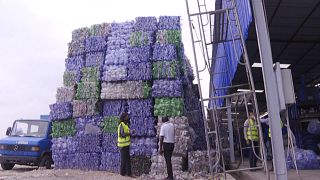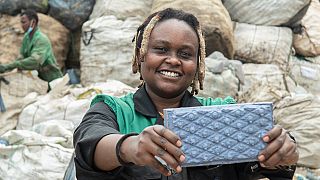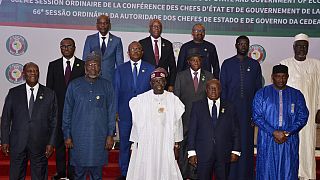Nigeria
For Nigeria's most disadvantaged communities, securing funds for school fees can be a daunting task.
However, some parents are gathering plastic waste to finance their children's education.
Fatimoh Adeosun, a litter picker, is committed to collecting as much plastic waste as she can in order to maintain her son in school.
"The reason I go about picking up plastic waste to fund my child’s education is because about three years ago, life was hard and my son left school. I found somewhere to do a menial job. One day, I saw people picking plastic, I approached (the school) and asked if I can pick it and they convert it for my son’s school fees and I was given the go ahead,” she says.
It is thanks to non governmental organisations like My Dreamstead School whose initiative has helped to bridge the education gap by accepting platic waste for school fees.
Isaac Success, Plastic waste for school fees initiative, argues that, "Lagos generates over 800,000 (metric) tons of plastic waste annually. And having these parents bring in their waste, they are not only protecting the environment, they are also securing the future of their children through an education.”
My Dreamstead School reports that allowing plastic waste as payment for school fees has allowed hundreds of children to go back to school and obtain a fundamental education.
As the saying goes, "one man's trash is another man's treasure." For Adeosun, "one man's trash is another's education."










01:34
Negotiators in South Korea fail to clinch agreement addressing plastic polliution
01:44
Plastic pollution: Nations meet in final round of talks to strike treaty
01:25
Negotiators race to reach deal as climate talks face deadlock
01:10
COP29 data reveals most polluting cities
01:14
Delegates express cautious optimism on second day of climate summit
11:07
Botswana's new government races to diversify its economy {Business Africa}